Fauness Announces Dreamlike Debut Album
If the London-based singer is certain of one thing it’s a future in music, and her recent release “The Golden Ass” is here to claim her place
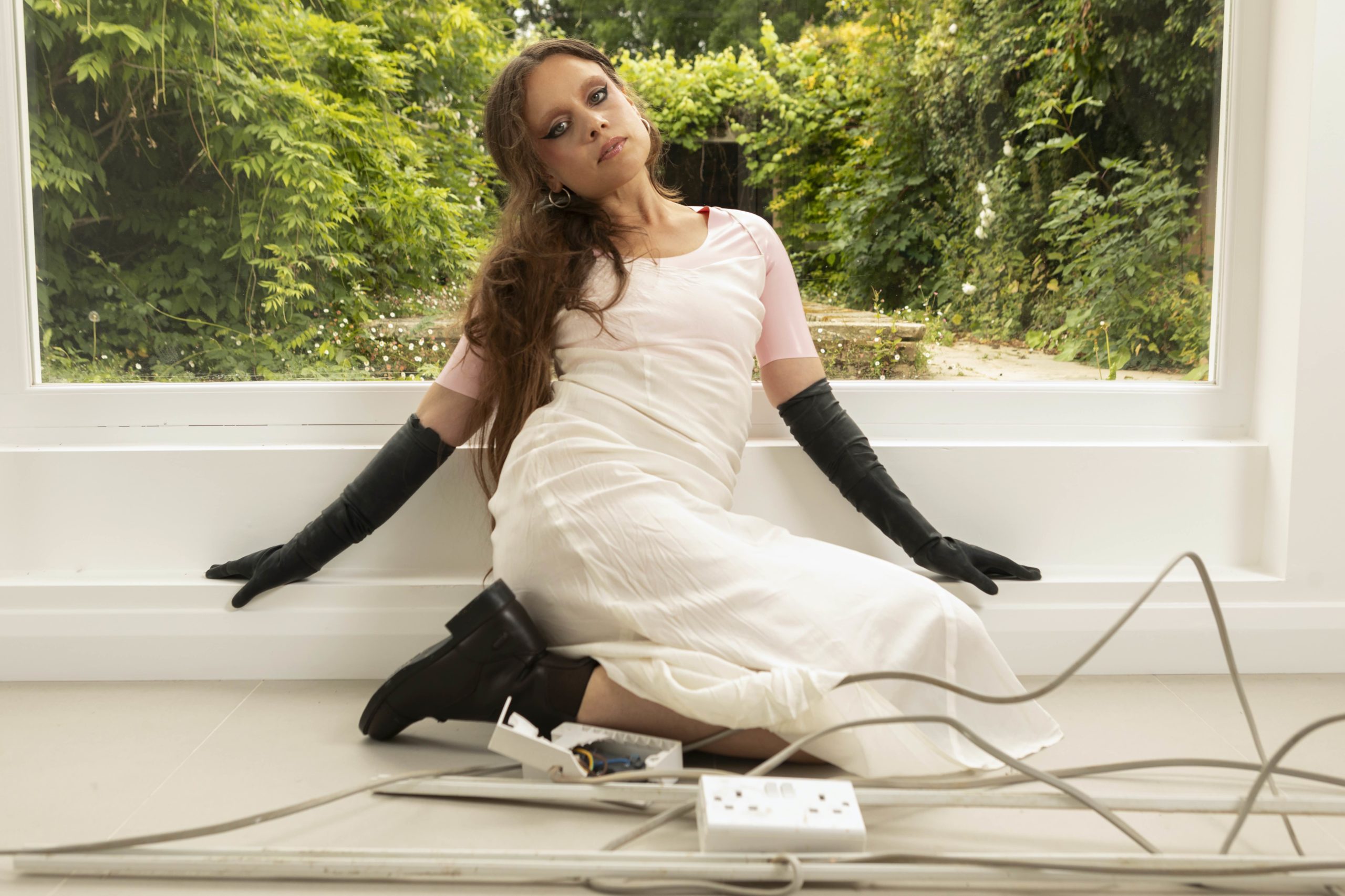
Earlier this month, budding pop prodigy Fauness released three unheard, magnetic singles, each brimming with electro-acoustic storytelling and layers of the artist’s endearing vocals. Cora Gilroy-Ware, the London-based singer-songwriter behind the idyllic moniker, prides herself in the ambient fusion of deeply personal themes and memories embedded in her recent tracks, and follows their releases with her debut album, The Golden Ass.
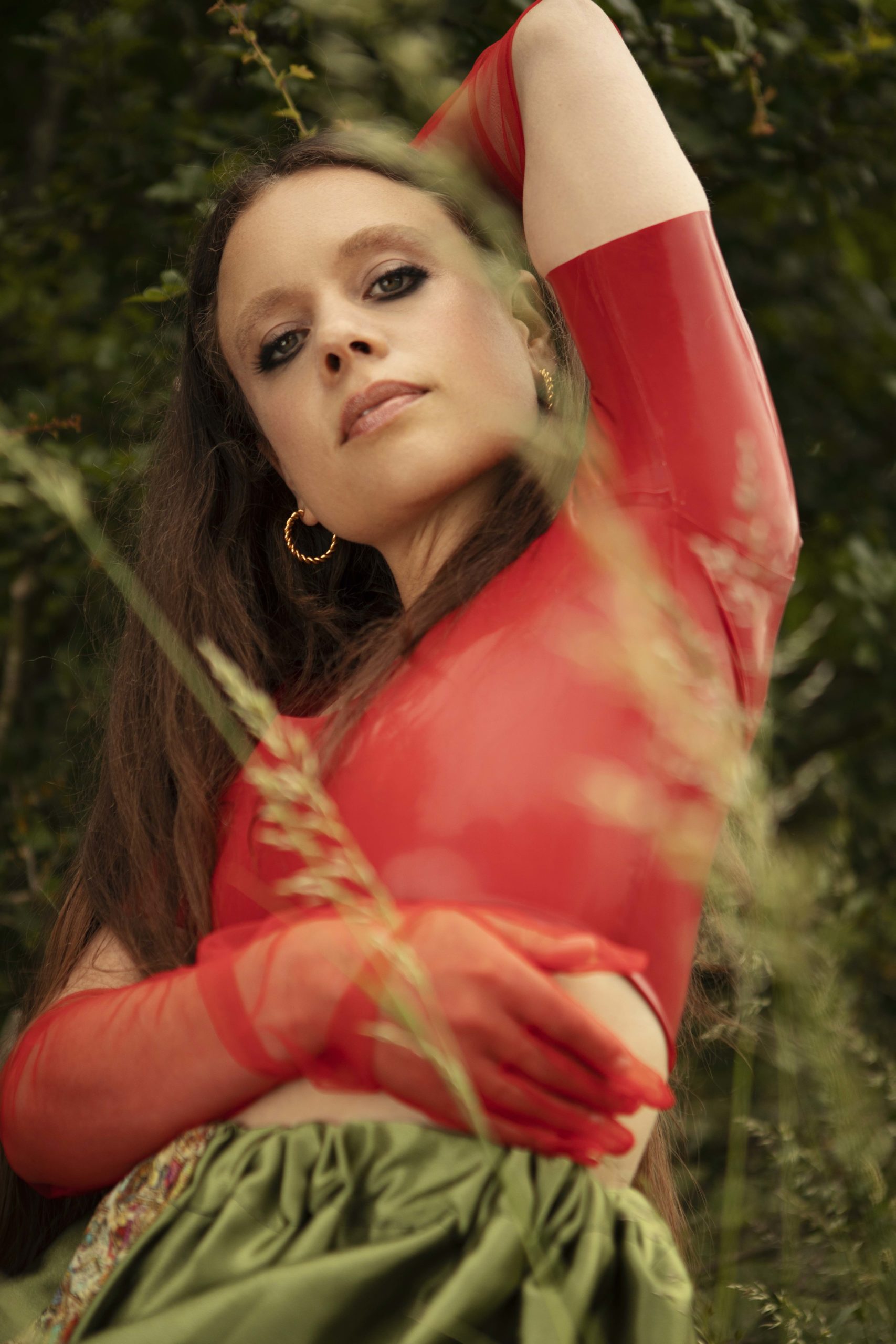
Like her three previewed singles, “High,” “Hours,” and “Mystery”—the latter two bearing videos directed by Fauness herself—The Golden Ass paints a mirage of teen angst against dream-pop and soft rock. Inspired by a childhood split between the New England coast and inner-city London with nods to her favorite artists of the past, Fauness transports her listeners into her own sonic diary. “Musically, ‘High’ is an homage to the music I love from the late 1970s, particularly the songs of Nicolette Larson, one of my favorites from that era,” she says. “But the spirit of the song is deeply personal. It speaks to the fact that my life so far has been all about journeys. Bus stops, train stations, even airports are comforting places to me where I strangely feel a sense of home. My entire sense of self was shaped as something that could easily fit into a suitcase.”
It was this constant change that left the artist often feeling like an outsider, turning to music and dance as an outlet to escape the discomforts of school. First playing violin and then the guitar, she learned the chords to write her own songs, and thus began an instinctive journey. In 2018, Fauness collaborated with her now co-producer Jack Latham, embarking on a solo career not long after. Choosing her pseudonym from the Latin fanus, she entered the world of music with a clear vision and a dreamlike sound. Culminating years of her creative ambitions, The Golden Ass is her debut contribution to genre-fusing pop, paving the way for more to come.
Keep reading for our conversation with Fauness as the artist talks musical inspiration and the making of her debut album.
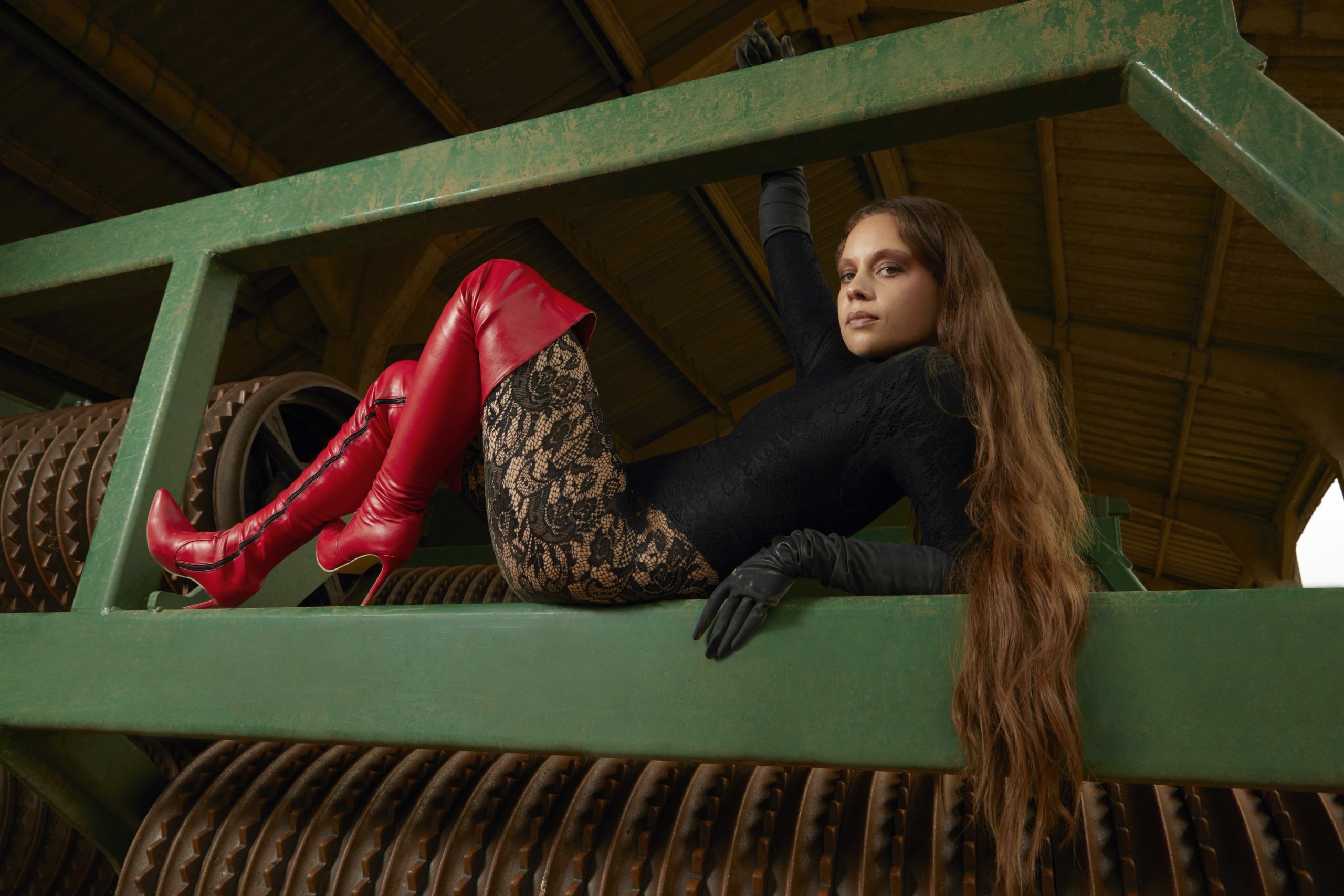
V MAGAZINE: First, congrats on your debut album, The Golden Ass. It’s amazing. Where did you begin with this project?
FAUNESS: Thank you so much. I began the project with a bunch of demos made over the course of the past few years, thinking I would develop them into a long-form record. In the end, though, the vast majority of the album was brand new material. I wrote most of it in a fairly short burst, around December and January of 2021 and 2022. There is an intimate quality to the way the record sounds that is down to the fact that none of the tracks were written in professional studios. Most came to light in various domestic spaces—my apartment, homes of family and friends—which may have disturbed the neighbors, sorry, but added a warmth to the overall aesthetic, and to the emotion of the record as well. Only towards the very end did Jam City and I spend time in a recording studio, and that was to polish the tracks record and add final touches to them.
As a listener, I’m an album person. It’s been my dream to make one for as long as I can remember. Getting lost in an album is a magical thing. If you think about it, albums are the original playlists, a way of putting on music without having constantly to choose a new track. I love that sense of unity and cohesion, of pace, ebb and flow, that goes into making a long-form record, and ordering the the tracks until you calibrate it perfectly. In some ways, this album is a natural progression from my previous releases, but inadvertently, it inclines toward the darker side of who I am. Once I realized that, I began to lean into it, using it as a chance to explore those depths.
V: What is the significance behind the title, The Golden Ass? How did you come up with it?
F: The title is a reference to a Latin novel by the author Lucius Apuleius, who wrote from the Roman Empire. I am aware that this sounds very pretentious, but there is a double entendre to the title which I liked and I felt spoke to the breadth of my interests. For me, the title and the imagery around the record bring together sexuality and intellect, two qualities that are seen as mutually exclusive for women and people of color.
I can’t read Latin—I didn’t have the option of studying classics at school, so came to know the story of the book—particularly the story of Cupid and Psyche which is the most famous part of the novel—through representations in visual art, in painting and sculpture. Visiting museums and looking at works of art online, I became fixated on Apuleius’s figure of Psyche, a mortal girl who is separated from her family and forced to marry Cupid. After being told that she allowed to see her husband, she sleeps with a mysterious, ethereal presence every night, wondering who he is and what he looks like. She breaks the rules by lighting a candle to look at him. She’s punished for this transgression and has to go through a lot on her own before she can find peace. I’m not sure why exactly, I can’t put it into words, but I’m drawn to Psyche as lot other artists over many centuries have been before me. Actually, the first song I recorded to a vaguely professional standard was a kind of dialogue with between me and the same mythological heroine. I identify a lot with her suffering as a result of breaking the rules. That energy is conveyed on my album. The candle on the back-cover of the vinyl is a tribute to Psyche.
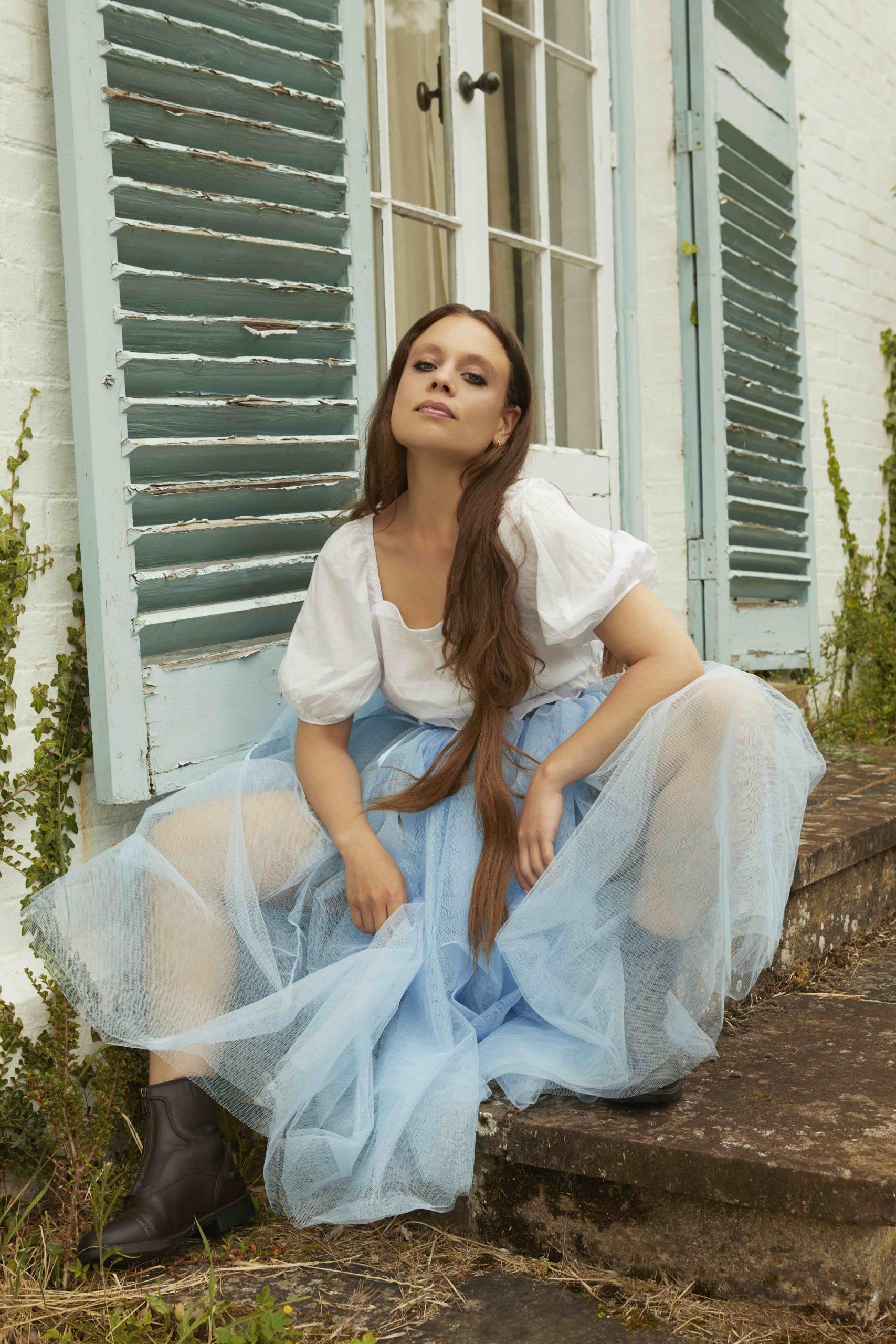
V: What was the biggest inspiration for this album? Is there a specific message you hope to convey with this project?
F: My more overt inspirations come from women singer-songwriters of the late 70s, which seems like a narrow and specific window in time, but a lot of music I adore was made around ’78-’81. I think it’s because during this interval, new sonic technologies were coming into use, but with caution, creating a think beautiful friction between analogue and early digital, old and new musical worlds. Again, it goes back to the album thing – the two LPs by my favourite artist Valerie Cater, Just A Stone’s Throw Away and Wild Child still sound new to me, no matter how many times I listen to them. Although our voices don’t sound particularly alike, I feel a deep connection with Valerie, who died a few years ago after a battle with addiction. The fact that she was so underrated as a solo artist gives me comfort. It meant that her music is always fresh. I get to tell people about her – she is always being discovered anew and will continue to touch people for a long time. Although it was hard for her to be unappreciated during her lifetime, there is also something special and more permanent in being an eternally hidden gem.
V: And can you take it back a bit and tell us what’s your earliest memory of music and performing?
F: Growing up I underachieved academically and didn’t consider myself especially smart intellectually, at least in a conventional way (which is ironic now as I find myself around conventionally intelligent people in my day job and feel very different to them). When I was younger, art, especially performing arts, was really all I cared about. I felt very liberated doing school plays and being in that space, the feeling of holding an audience always felt much more comfortable to me, in a way, than navigating everyday life. I also played violin in orchestras from a young age, which I enjoyed because of that sense of playing with other people as one organism, which is a lovely feeling. I actually play violin on several tracks on the album, and a bit of banjo, which I am learning slowly.
V: When did you first fall in love with music and performing?
F: In terms of performing music, I play sometimes with my family, my dad, his friends and my brother. A big turning point was a show I played with Jam City in 2017. My job this time was playing keyboards and some percussion and it went very well, we really killed it if I may say so myself. Then, the next evening, a girl came up to me on the overground train who had been at the gig. She recognized me and and asked if I released my own solo material. I already had a bunch of demos, but I went back to making music with a new sense of confidence. About a month later, a friend had given me a frankincense tincture to help with my insomnia. I took it and a very intense lucid dream and turned it into the first solo song I ever officially released, “Street Song”.
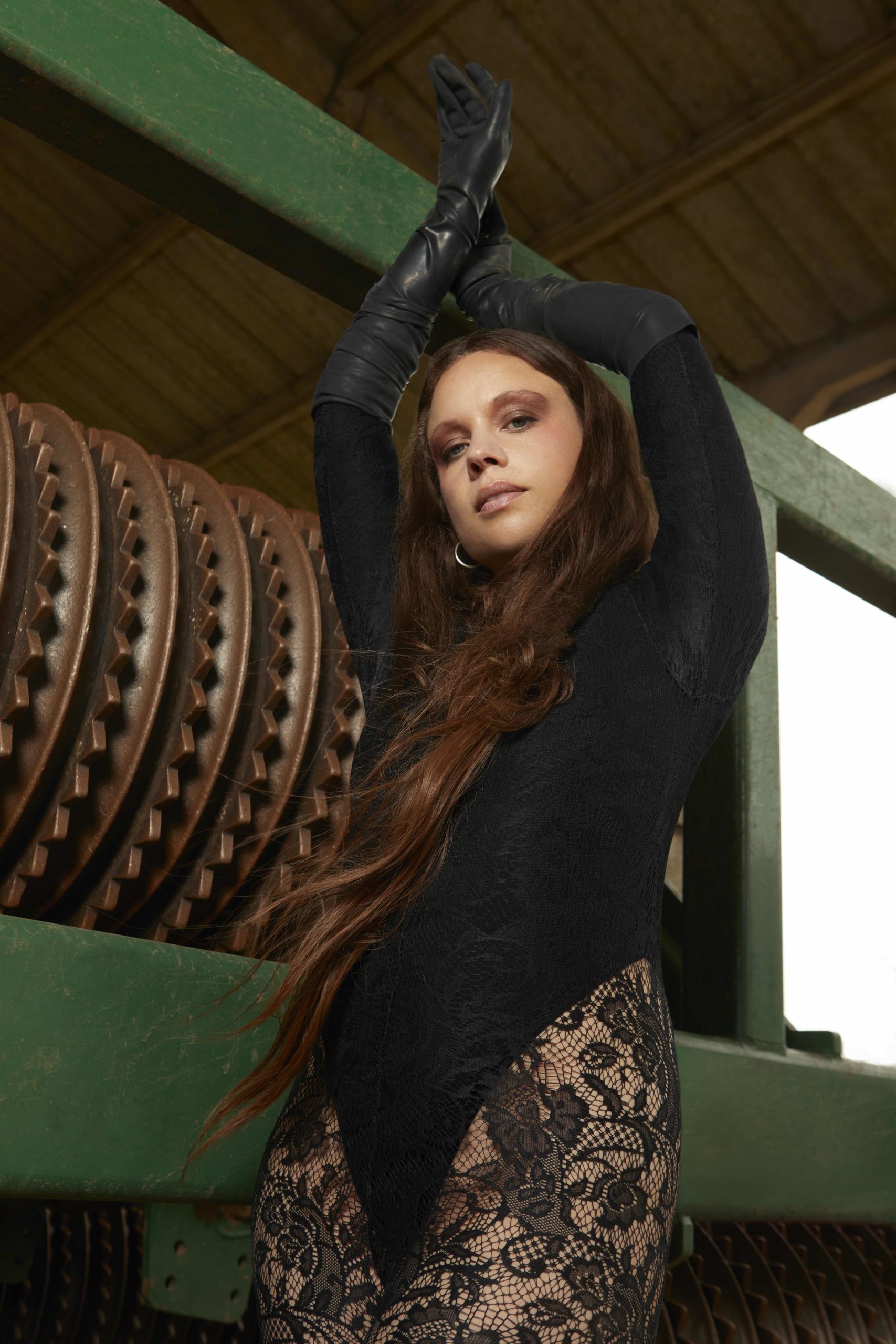
V: We read that you grew up in Connecticut, do you think the state or town you grew up in influenced your sound?
F: I grew up constantly moving between a very diverse, urban part of London, and small-town Connecticut, never really being able to feel grounded in either place. I was thinking recently that, in spite of being a London girl at heart and spending most of my time there since 18, the fact that I went to high school in the US means I was socialised there. This means that bizarrely, I have more of a connection with the East Coast, US teenage experience than the London equivalent, although I experienced both. Now, most people read me as being from the UK, which means that a huge portion of who I am has been eclipsed. The album definitely gives voice to the plurality of my experience, and the US side in particular, which is dying to come out and be heard.
V: What do you hope your music does for people?
F: A lot of the music I love I discovered by accident, on Youtube, seeing a thumbnail and clicking on it, not knowing if it was from the past or the present, and falling in love with it either way. I want my record to have this same kind of timeless quality. There is a part on one of the record’s interludes where I am describing a villa seen in the distance of an imaginary landscape, relating how I didn’t know if this “was a ruin or if it was new.” This was the kind of record I wanted to make, something that sits outside time. While letting me have an outlet and be my true self, I strive to create something that people from all walks of life could connect with. Universality is difficult to achieve as an artist, perhaps impossible. I’m not arrogant enough to think that my record has that kind of appeal. However, the accessibility of the melodies, the directness of the production and the lyrics – those qualities are based on my desire to connect with as many people as possible. To me, this is the beauty of pop music: I am more interested in the human side of “popular” than the commercial side.
V: As we wrap up 2022, is there anything you’re still looking to do?
F: Lockdown happened just as I was beginning to perform more. When COVID hit, I had done a few small shows and beginning to pay my dues as a live performer. It may be dramatic thing to say, but writing music is the thing that keeps me alive, and I love performing just as much. I’m off to Switzerland this weekend to play a special one-off show that celebrates the album’s release. I’m looking to get more shows lined up, if not in 2022 then next year.
Discover More
